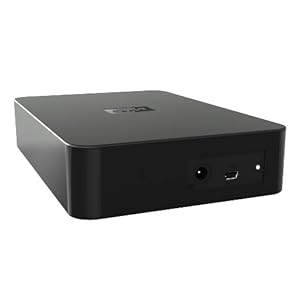Is your hard drive acting up? Do you fear the loss of data, downtime, and potential loss of revenue this could bring? Let's take a look at diagnosing hard drive problems, and what the symptoms are.
The surest sign of a major question is this: when you write data to the disk, and retrieve it later, errors pop up. It might take the form of small amounts of data going missing, or being turned into gibberish. If this happens in more than one program, disk failure looms in the very near future.
Western Hard Drive
Some users "cure" this question by reformatting the drive, then re-installing the Os and all programs. Unfortunately, this doesn't literal, the root cause of the trouble, and it will only be a matter of time before it pops up again, perhaps fatally.
Strange Noises, particularly high pitched squeaks, are often attributed to the hard drive. In the majority of cases, these squeaks aren't arrival from the drive, but from a case fan, or Power Supply fan.
Listen intimately with one of the side panels reMoved to zero in on the sound. If necessary, unplug the drive's Power cable, then turn the computer on. If you still hear the squeak, you know it's a fan. But if the squeak goes away, only to return when you boot the hard drive, you have a very serious problem.
If your hard drive seems to be working too much, constantly chugging away, always sending data to and from Ram, the question isn't your drive. The odds are you need more Ram. Today's giant programs are memory hogs, weighty in size, creating multi-megabyte files.
If your hard drive is slowing down there are a amount of dissimilar causes. These won't lead to disk failure, but they can be frustrating.
The first, and easiest to deal with, is drive fragmentation. In Xp and Vista it's easy to defragment a drive, requiring only a few mouse clicks, yet most users let months go by without doing it. They wait until their machines have slowed to a crawl before performing this most basic act of computer maintenance.
Another cause is the volume of data stored there. The more data on the disk, the slower retrieval and write-to rates become. The cure is obvious. Whether do a bit of house cleaning, removing unneeded files, or add an additional one drive.
Sometimes, a sluggish hard drive can be a indication of illness of spyware, adware, or a virus. A good security schedule can scan your drive, and tell you if you have one of these problems.
Computer Hard Drives - Hard Drive Problems and SymptomsRecommend : Buy Shopping Discount Latest Tablet PC LG 55LX6500 55 Inch LED

No comments:
Post a Comment